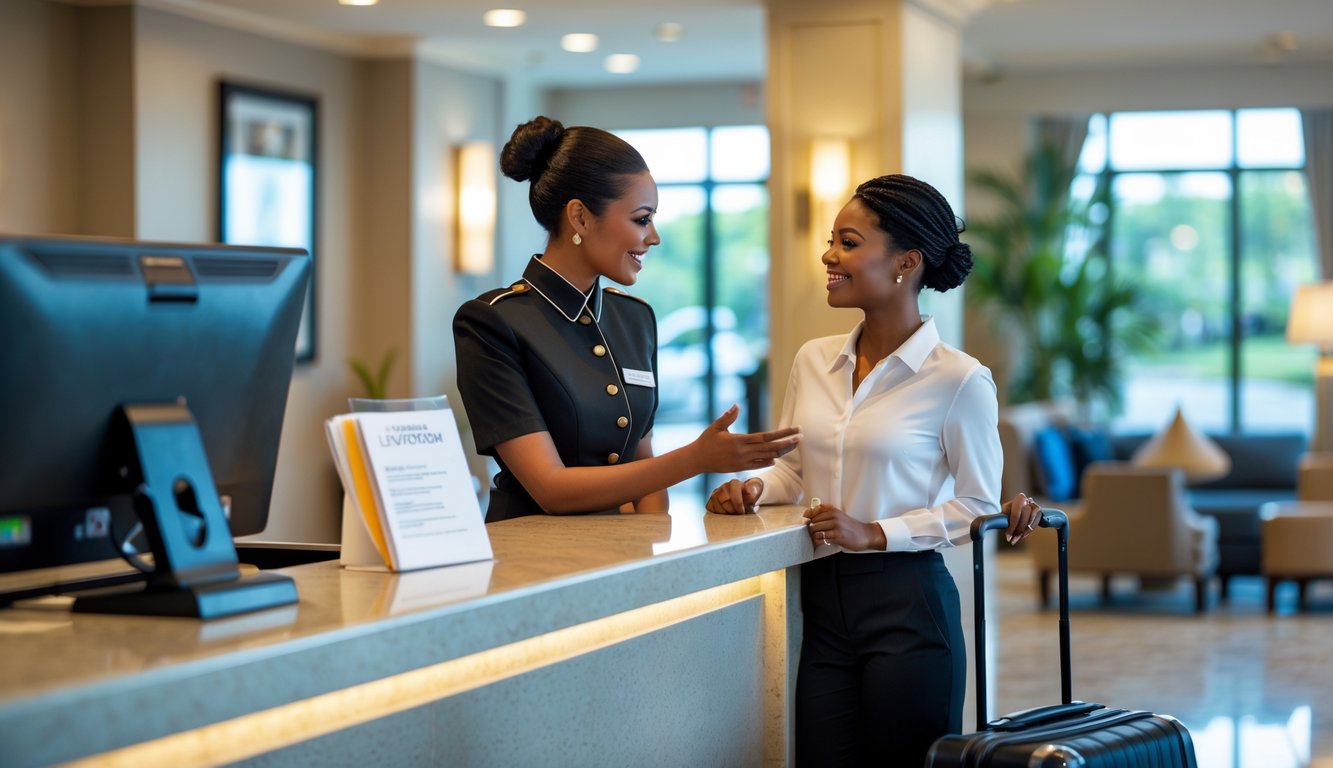
Behind-the-Scenes: Hotel Management Policies

Early check-in policies? Honestly, it’s all about squeezing every penny out of the building without making guests mutiny. The rules, the reality, the “I just want my room” moments—it’s a mess. And once you see behind the lobby desk, you can’t unsee it.
Standard Operating Procedures
People think front desk workers are just winging it. Not even close. There’s a binder—sometimes digital, sometimes a real monster—that covers every scenario, from early arrivals to what to do with a lost toothbrush. I watched a manager absolutely lose it when a new hire skipped step four in “A-7: Early Arrival Protocol.” Apparently, that’s a big deal.
They literally keep a spreadsheet ranking rooms by readiness and guest status. VIPs always jump the line, no matter how tired you are. Some places have fancy PMS software that flags who gets early check-in. Sounds smart until you get bumped for a Platinum at 9 a.m. That’s the deal: tech runs the show, and it only cares if you’re important today. Here’s a fun read on how hotels handle early arrivals.
The whole thing depends on wild coordination—housekeeping, maintenance, front desk. One typo, and your room’s delayed until 3 p.m., but nobody tells you. Insider tip: ask if your room is “inspected,” not just “clean.” I learned that after seeing five different “ready” categories in one system.
Balancing Revenue and Guest Experience
Nobody says it out loud, but early check-in fees are mostly there to stop everyone from showing up at 7 a.m., cranky and desperate. If the hotel’s half-empty? Suddenly, early check-in is easy and sometimes free.
Hotels track every penny. Ever wonder why one front desk agent shrugs and another charges you $40? It’s because pricing changes with the wind. I saw a Kalibri Labs report that said hotels make up to 12% more revenue per available room when they play the early check-in game right. Even the pros were surprised.
Chasing guest happiness almost never beats the numbers—unless the reviews get ugly. Managers check review sites daily, and if enough people complain about early check-in, suddenly the rules bend. Try getting between a GM and their guest scores. Sometimes, if you ask nicely, the $20 fee just disappears. Act low-maintenance, mention you’ve stayed before, and watch how random the whole thing is.
Maximizing Room Availability for Early Arrivals

The rooms never feel ready, no matter what the status board says. Even the best staff are running around, juggling schedules, cranky guests, and chaos—just hoping to hand you a key before lunch.
Coordinating with Housekeeping
Sometimes I’m glued to the digital board, sometimes I’m texting someone on the fifth floor: “Room 527, please, VIP checked in (not famous, just grumpy)!” Official check-out is noon, but early birds are hovering at 10 a.m., convinced their last hotel always had a room ready. Meanwhile, yesterday’s guests are still in robes, ignoring the checkout time.
We all know who hustles—Maria never misses a detail, Sam actually mops, and he answers his walkie every time. I’ll note “upgrade possible” or just yell down the hall, “That suite’s clear?” and, occasionally, someone desperate for a nap at 7:30 a.m. gets lucky. I picked up the housekeeping status cheat sheet: Red? No way. Yellow? Prep your apology. Green? Cross your fingers. Ignore those requests, and everything falls apart.
Once, a new hire swapped two pillows and claimed a bed was “fully reset.” Nope. Trusting just one team or message? Guaranteed disaster. Early check-in guides say your best shot is a real, in-person plea and making it feel like everyone’s problem, not just yours. Teamwork wins. Checklists, not so much.
Using Technology for Faster Turnover
Honestly, the biggest headache? That awkward standoff where the guest and housekeeper swear the room’s spotless, but the PMS still flashes “dirty.” Isn’t this the kind of thing tech was supposed to solve? If only. Half the time, the app logs me out or someone updates the wrong room, and then I get blamed. No, front desk staff can’t just magic it fixed. Sure, HotSOS and those live status boards help—when they work. I’ve actually chased maintenance down the hall, iPad in hand, muttering about Wi-Fi. If the stars align, someone checks in half an hour sooner. If not? Back to awkward apologies.
Tablets are supposed to speed things up, but the second you hit the stairwell during a rush, the Wi-Fi evaporates. No system’s foolproof. My manager once flipped the housekeeper’s app into “rush mode” and suddenly, five rooms got marked “clean” before anyone even touched a pillow. I read somewhere—One Mile at a Time, maybe—that about 65% of early check-ins get handled with tech alone, but only if someone actually keeps the software updated. That’s a big if. Honestly, I’d rather deal with a system crash than tell a family their room isn’t ready because someone fat-fingered an icon.
Some mornings, it’s just chaos. I’ve seen front desk and housekeeping swap carts at the elevator, hoping to save a couple minutes. The real trick isn’t the fanciest app, it’s everyone actually knowing how to use it—and, wild idea, checking the bathroom before swiping “ready.” I’ll never forget this one time a wedding party rolled in three hours early and got all their rooms instantly, just because I saw the housekeeper’s green light blinking by accident. Total fluke. They were thrilled. Management? Blissfully unaware.



